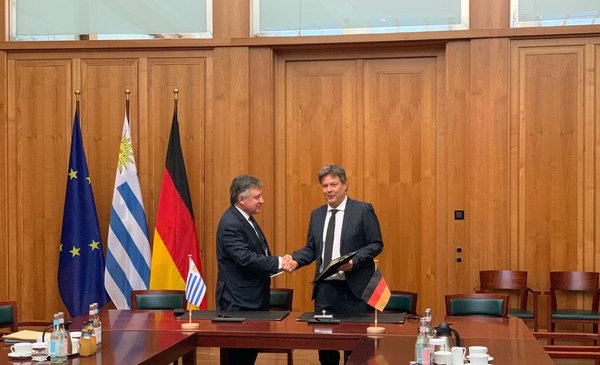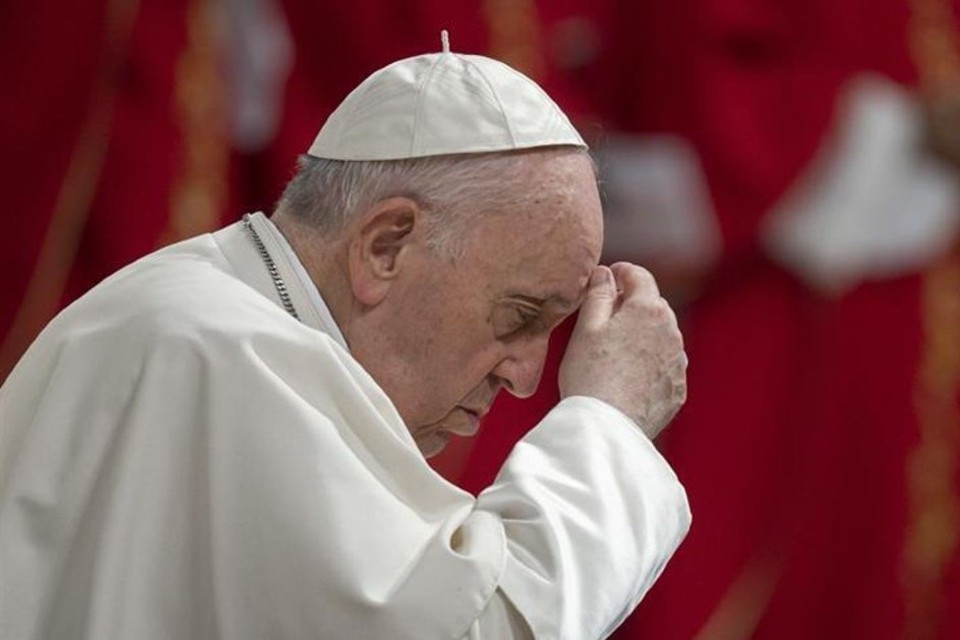Uruguay and Germany signed this Wednesday, March 29 in Berlin, an energy agreement that establishes a framework for technical cooperation and exchange of knowledge between both countries to develop joint actions in the development of renewable sources and alternative fuels, informed the Ministry of Industry, Energy and Mining (MIEM).
The agreement, signed by the Uruguayan Minister of Industry, Energy and Mining, Omar Paganini, and his German counterpart from the Federal Ministry of Economy and Climate Action (BMWK), Robert Habeck, will allow the creation of a steering committee made up of ministers from both countries .
Also, yese technical working groups will be created to promote exchange and actions on topics such as green hydrogen, energy efficiency, electric mobility and battery storage.
This new alliance with the German government -a strategic partner that has led the decarbonization policy in the world- places Uruguay as one of the few signatory countries worldwide and is possible “thanks to the extensive work carried out by Uruguay in the reconversion of its electrical matrix. Now, this effort continues with the second energy transition aimed at reducing the use of fossil fuels in the total energy matrix, the statement said.
Uruguay in Berlin
The signing of the agreement took place within the framework of Uruguay’s participation in the Dialogue Conference on the Energy Transition in Berlin, on March 28 and 29, where the country was represented by Minister Paganini, the coordinator of the H2U Program for the development of green hydrogen from the Ministry of Industry, Energy and Mining, María José González, and the president of Ancap, Alejandro Stipanicic.
“This agreement reinforces Uruguay’s commitment to decarbonization and Germany’s recognition of our track record and potential. Uruguay can develop a central role as a supplier of new renewable energy sources, with a clearly complementary profile with European countries”said Minister Paganini.
“Today, the diversification of suppliers is strategic in geopolitical terms, and the countries of the South, with a surplus of renewable energy, are part of the solution,” he added.
Energy Partnership
Energy Partnership is an instrument of the Federal Ministry for Economic Affairs and Climate Action (BMWK) with countries committed to the full energy transition to create a global network aimed at facilitating energy policy exchange at the intergovernmental level and fostering innovation in energy policy and economic cooperation.
The signing of the Joint Declaration of Intentions establishes a general framework to promote dialogue on energy policy and technical cooperation. This will allow the development and improvement of sustainable energy infrastructures, as well as the creation of modern and efficient energy markets, in particular by promoting the increased use of renewable energy and energy efficient technologies.
With green hydrogen and the promotion of electric mobility, Uruguay now intends to complete its energy transformation. In this second stage, which the country has already begun to undertake, new challenges will be taken on, such as the development of a green hydrogen economy and the continuation of the decarbonization of the energy sector and the production of raw materials.
The agreement will allow Uruguay to continue positioning itself as an attractive country to attract investment, expand its economic opening towards Europe in future energy markets and consolidate its position as a global provider of renewable energyreported the MIEM.


















